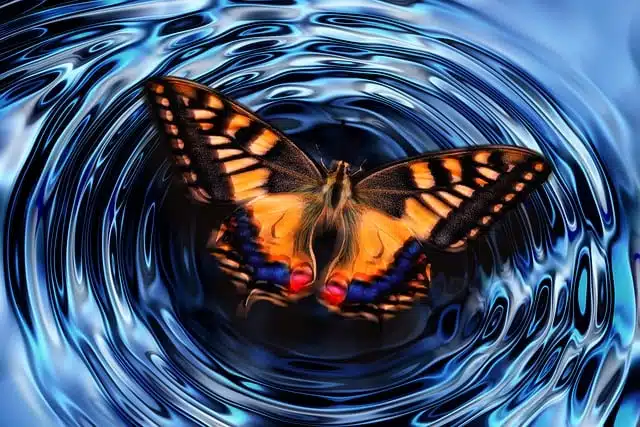
The butterfly effect assumes that a minimal change in the initial conditions of a system causes large changes in subsequent states.
With etymological origin in the Latin effectus , effect is a term that refers to what is produced from a motive or cause . The effect can be understood as a result or a consequence .
A butterfly , meanwhile, is an insect of the order Lepidoptera. It has a mouth suitable for sucking and has two pairs of wings.
From these definitions, it seems impossible to understand what the butterfly effect is. However, this expression is based on a metaphorical use of this animal 's flapping wings .
What is the butterfly effect
The butterfly effect means that, in a certain system , a small alteration or perturbation of the initial conditions causes a big difference in subsequent states . This is due to an amplification phenomenon that results in a considerable effect whether in the short, medium or long term.
The idea of the butterfly effect has its origins in the story "A Sound of Thunder" by Ray Bradbury . In this story released in 1952 , Bradbury alludes to the paradox of time travel , linked to how eventual changes introduced in the past would make it impossible to develop the future as we know it.
In Bradbury 's story , a time traveler crushes a butterfly in the past. This minimal action causes great changes in the subsequent development of all events.

The idea of the butterfly effect is linked to how the flapping of this insect's wings at a given moment could generate important modifications in the future.
Edward Lorenz and chaos theory
The notion of the butterfly effect itself was coined by the American meteorologist and mathematician Edward Lorenz , born in 1917 and died in 2008 . To try to understand the instability of an atmospheric system, Lorenz turned to a simple mathematical model, analyzing the solutions .
This scientist discovered that minimal changes in the original variables led to very different solutions. He later called this very sensitive dependence on the starting conditions the butterfly effect.
According to this idea, the flapping of a butterfly's wings at a specific moment can modify, in the long term, a succession of events of enormous magnitude. This concept is key in the so-called chaos theory , focused on dynamic and complex systems that are very susceptible to changes that occur in the original conditions.
Lorenz presented his vision in an article he published in 1963 . It is interesting to note that the mathematician would have used a seagull as an example in the first instance, but then replaced the bird with a butterfly to make the premise more poetic.
Movie "The Butterfly Effect"
The butterfly effect is reflected in numerous films and books. The expression (especially in English, "the butterfly effect" ) is also used in titles of songs , albums and musical groups.
One of the best-known works of this group is the film "The Butterfly Effect" ( "The Butterfly Effect" in its original language), which was released in 2004 and had two sequels. It is directed by Eric Bress and stars Ashton Kutcher and Amy Smart .
The film revolves around a young man who travels through time, inhabiting his body from the past with his adult mentality. In this way, he changes the present through modifications of his actions from previous years.
